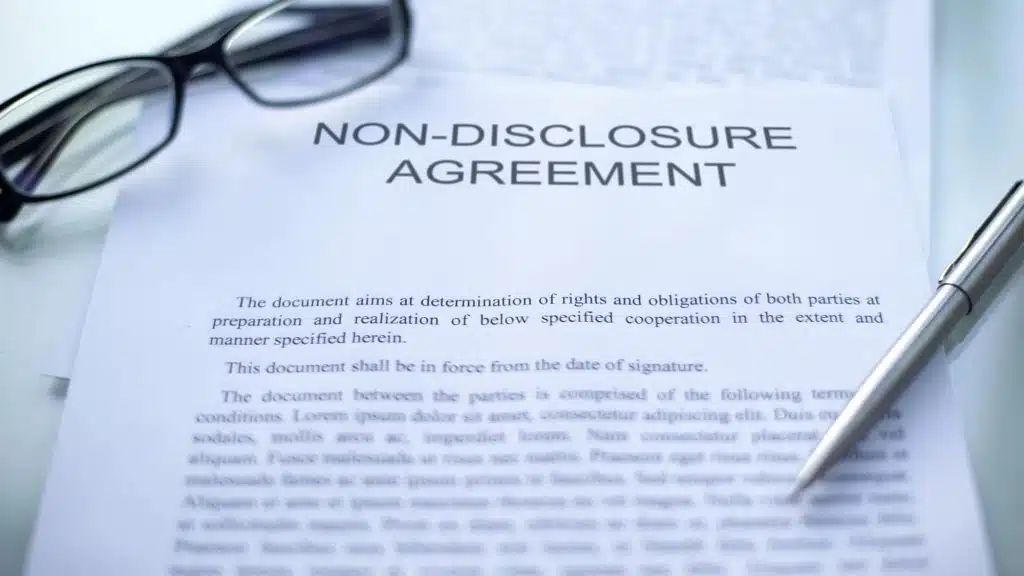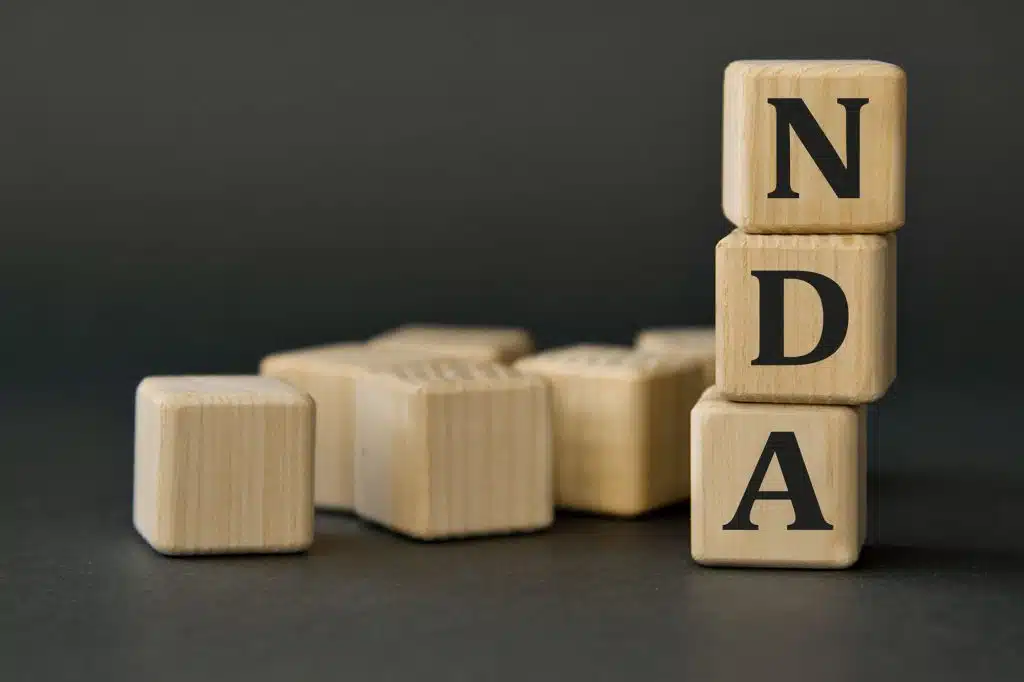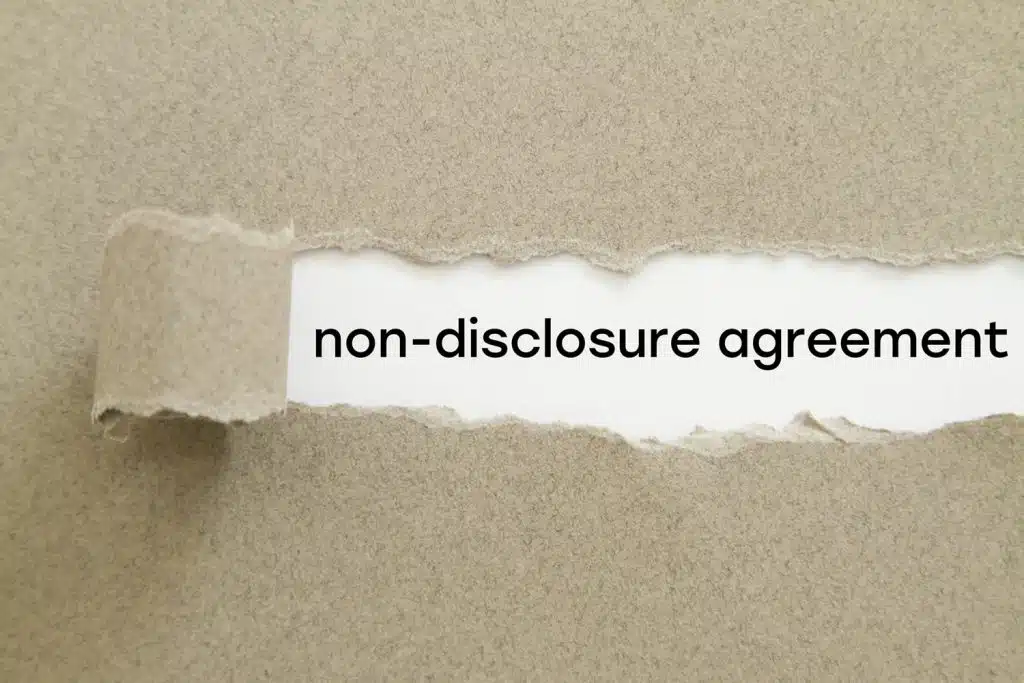Introduction
Protecting sensitive information is crucial to ensuring the success of your business. Whether you are negotiating a business sale, onboarding new employees or partnering with other businesses, it is crucial that sensitive information not in the public domain about your business is safeguarded.
One of the most common ways this information is protected is through Non-Disclosure Agreements (NDAs). However, there are two different types of NDAs: a unilateral NDA and a mutual NDA (MNDA). While both documents are NDAs, there are key differences that must be considered to ensure that your information is adequately protected.
This article will break down each agreement highlighting when each should be used and their role in protecting your sensitive information.

Non-Disclosure Agreements
NDAs are legally binding contracts that prevent parties from sharing any confidential information that they learn of or otherwise obtain in the course of their dealings with the other party. The main difference between the different types of NDAs is who is sharing and who is receiving the confidential and sensitive information.
Despite there being two different types of NDAs, each document will need to include information regarding what specific confidential information is protected, who is prevented from disclosing such information and how long they are required to protect the confidential information for under the agreement. It is worth noting that NDAs are rarely for a term of more than a few years and if the term for an NDA is for an extensive period, a court may find it unenforceable.
Unilateral NDA
A unilateral NDA is a one-way agreement. This means that a unilateral NDA is mainly used in circumstances where only one party is sharing the confidential information. In this case, the other party under the contract is legally prevented from sharing or disclosing any confidential information it receives.
An example of where a unilateral NDA could be used is if you own a business and you are participating in a cap raise where you are bringing on new shareholders. In this case, only the business would be disclosing its confidential information such as its trade secrets, financials and customer lists. Under the unilateral NDA, the prospective shareholders would be legally obligated to ensure that the information they receive is kept confidential and not used in a context other than what it was disclosed for.
There may be circumstances where parties enter a unilateral NDA only to later realise that both parties will be sharing confidential information. Under the unilateral NDA, the other party who was anticipated to only be receiving confidential information will not be protected when sharing their confidential information. In this instance, the other party can draft a second unilateral NDA that ensures their confidential information is protected in the same way as the current unilateral NDA.
Alternatively, the unilateral NDA could be terminated and an MNDA entered into.

Mutual Non-Disclosure Agreement
In comparison to a unilateral NDA, under an MNDA both parties will generally disclose confidential information to the other. This is in essence a ‘two-way’ agreement and the obligations to protect the confidential information will apply equally to both parties.
Where an MNDA may be useful is where companies are working together on projects or in developing a product. In these circumstances it may be necessary for each party to disclose their sensitive information such as their intellectual property, processes, products and contacts.
Breaching an NDA
No matter what type of NDA is used, they are both legally binding contracts that are enforceable if they are breached.
In the first instance, an NDA serves as a deterrent to unlawfully disclosing confidential information. However, if necessary, an NDA can provide remedies to a party whose confidential information is shared in breach of the agreement.
If a party was to breach an NDA, such remedies available include seeking an injunction against the relevant party to prevent the further dissemination of confidential information as well as seeking damages to compensate for any loss suffered by the party due to their confidential information being shared.
The information in this article is for general purposes only and you should obtain professional advice relevant to your specific circumstances.
Get in touch
If you or someone you know wants more information or needs help or advice in relation to protecting confidential information, please contact us.
Related Resources
Business Sale and Purchase Contracts Intellectual Property
Understanding the Advantages of a Non-Disclosure Agreement (NDA)
Non-Disclosure Agreements are an effective tool for safeguarding confidential information, in this article we cover everything you need to know about NDA's
Read moreContracts
Do we have an Agreement? Understanding Contract Law
To assist with determining whether a contract is in place, there are four essential elements to consider: offer, acceptance. Consideration and intention. This article will explore each of these elements.
Read more



